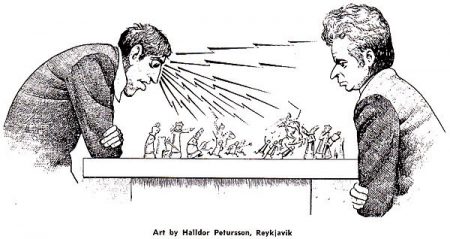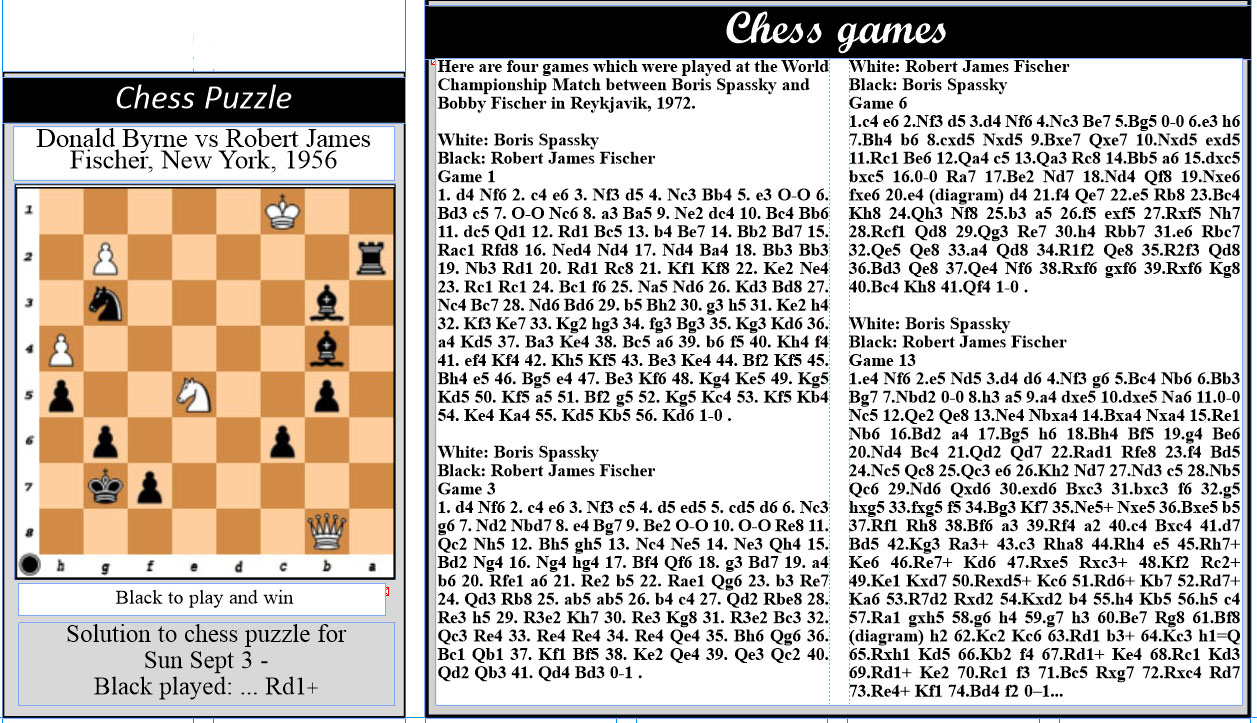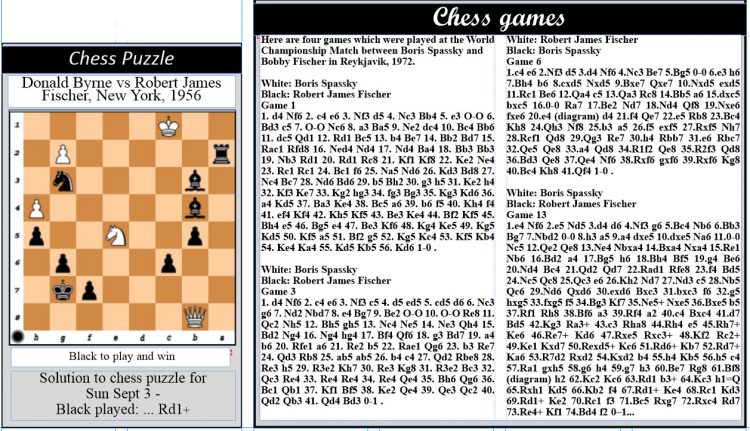You explain deep mysteries, because even the dark is light to you. – Daniel: 2:22
It was 45 years ago, that American Bobby Fischer, challenged Boris Spassky of the then Soviet Union, for the world chess championship title; today that story is still being repeated, analyzed and debated. It still lingers in the mind of those who love chess, especially the ones who were fortunate to follow the intrigue of the colossal encounter, and replay the full quota of games.
The Soviets had held the championship for 24 years. The countdown, therefore, for the commencement of the July 1972 match, electrified an international audience. We were in the dynamics of the Cold War, and a chess match between the two ultimate superpowers was a startling event.
The match was scheduled for 24 games, and although Spassky was the world champion, he wasn’t favoured to win. Fischer’s Elo FIDE rating was 2785, 125 points higher than Spassky’s 2660. Even with a 20-point increase, the separation favours the player with the more points. The conditions of the match specified, rightly so, that Spassky would retain the title as world champion should the match finish in a 12-12 tie. Fischer was committed to aim for at least 12½ points to ensure victory.
I was conversing amicably with a popular Russian grandmaster/previous world chess champion some years ago in Curacao, and he disclosed that Fischer had his fan legion even in the Soviet Union, before, during and after the match. Fischer won the acclaimed ‘Match of the Century’ as it was called. He wrapped things up in the 21st game gaining the designated and coveted 12½ points for the victory.

The match was not without drama. The first game of a chess match is critical since it sets the tone tor the duration of the encounter. From move one of the first game, Fischer was trying to win. He made a horrendous blunder in Game One during the endgame from which recovery would be difficult. Spassky captured his Bishop for two pawns and ensured the win. Analysts debate to this day whether the Fischer move in Game One of his world championship was deliberate. Did Fischer lose deliberately? Or was he rattled or unsettled by Spassky?
Fischer had never previously defeated Spassky in a tournament game. Following his defeat in the first game, Fischer complained all the more about the cameras and everything else. He failed to show up on time for Game Two and the game was forfeited. At that stage, Fischer was 0-2 in a world championship chess match. Such a count was unprecedented in a world class match. Was Fischer playing mind games?
Then suddenly, Fischer outplayed Spassky in the third game of the match in a Benoni defence. He took Games Five and Six also. For the duration of the match, Spassky won two games. It was all Fischer. It was if the dark and mysterious had been revealed to Fischer. Fischer was a king pawn player, but he wandered into Spassky’s milieu which took self-confidence and courage and he outplayed the Russian in Game Six and subsequently throughout the match.
When Fischer won the match, then US President Richard Nixon sent him the following message as published on Chess Base:
“Dear Bobby,
Your convincing victory at Reykjavik is eloquent witness to your complete mastery of the world’s most difficult and challenging game. The championship you have won is a great personal triumph for you and I am pleased to join countless of your fellow citizens in extending heartiest congratulations and best wishes to you.
Sincerely yours,
Richard Nixon”
Earlier, before the match began, then US Secretary of State Dr Henry Kissinger had requested that Fischer play the match. America had much to lose, he felt.






